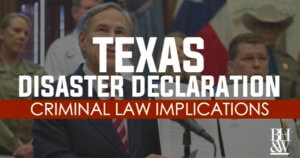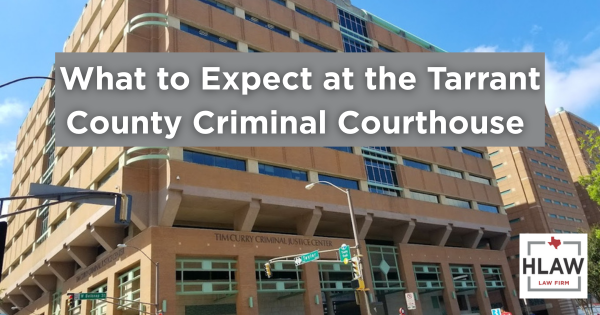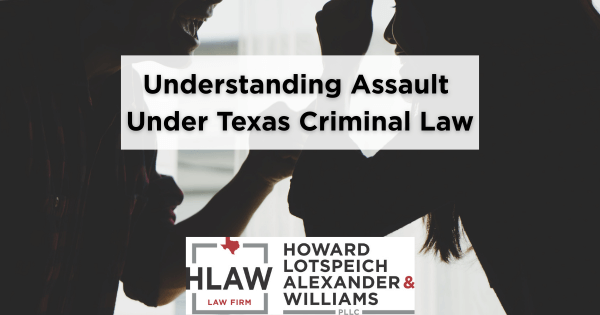 On March 13, 2020, Governor Greg Abbott declared a state of disaster in Texas in response to the COVID-19 pandemic. For the purposes of criminal law in Texas, that disaster declaration triggered the provisions of Texas Penal Code (TPC) 12.50.
On March 13, 2020, Governor Greg Abbott declared a state of disaster in Texas in response to the COVID-19 pandemic. For the purposes of criminal law in Texas, that disaster declaration triggered the provisions of Texas Penal Code (TPC) 12.50.
What are the Criminal Law Implications During a State of Disaster?
In general, TPC 12.50 states that for the offenses listed below, if committed during the declaration of a state of disaster, the punishment level for these offenses is increased to the next higher category for that offense. For example, if a Theft charge would normally be punished as a Class B misdemeanor (0 – 180 days in jail and up to $2,000 fine) then it would be increased to a Class A misdemeanor (0 – 365 days in jail and up to $4,000 fine) if it is committed during the time of the declared disaster.
Specifically, 12.50 applies to the following offenses:
- Assault and Domestic Violence (TPC 22.01);
- Arson (TPC 28.02);
- Robbery (TPC 29.02);
- Burglary (TPC 30.02);
- Burglary of Coin-operated or Coin Collection Machines (TPC 30.03)
- Burglary of Vehicles (TPC 30.04);
- Criminal Trespass (TPC 30.05); and
- Theft (TPC 31.03)
TPC 12.50 is limited by the following provisions:
For the offenses of Assault, Burglary of Coin-operated/Coin Collection Machines, Burglary of Vehicles, Criminal Trespass or Theft, if the offense committed would normally punished as a Class A misdemeanor, then during the emergency declaration the minimum term of confinement is increased from 0 to 180 days in a county jail.
For the offenses of Arson, Burglary, and Criminal Trespass, if the offense committed would normally be punished as a First Degree Felony, then there is no enhancement.










